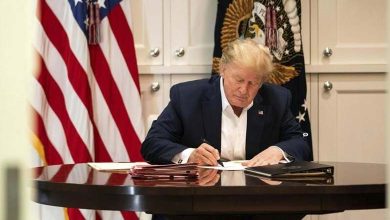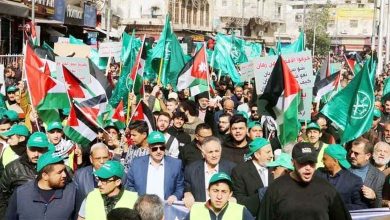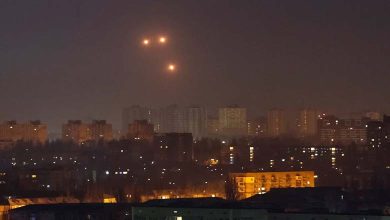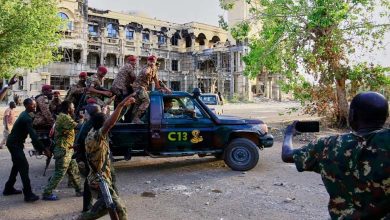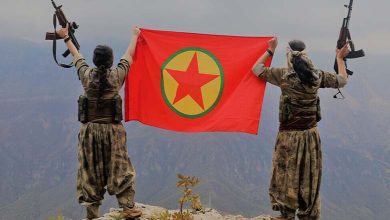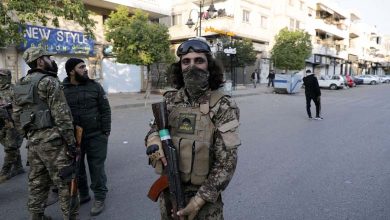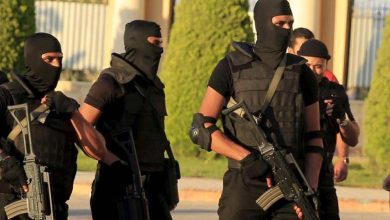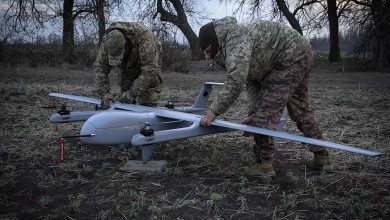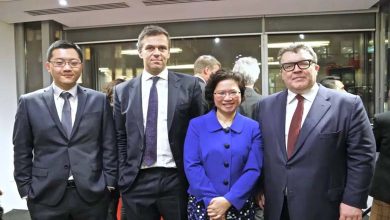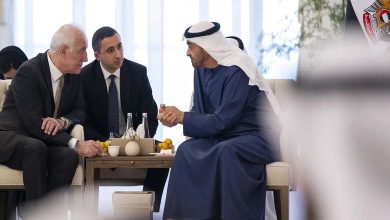Efforts to Bridge the Divide within the Islamic Movement… The Sudanese Muslim Brotherhood on Hot Coals
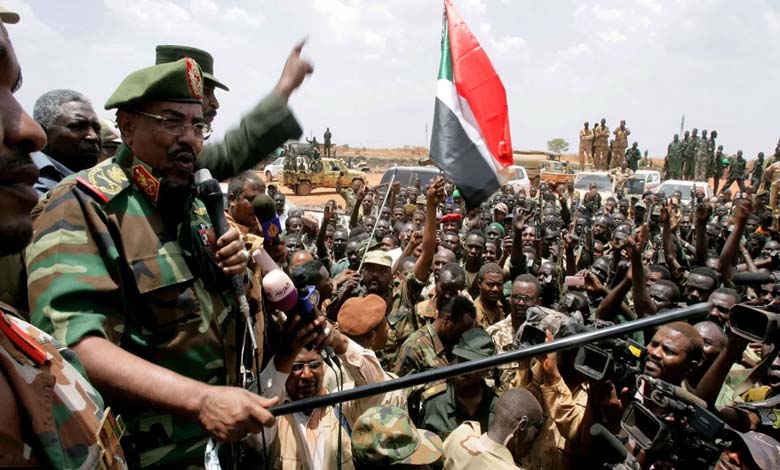
Recent movements by the dissolved National Congress Party in Sudan (c) have revealed a rift between two factions within the Muslim Brotherhood, which ruled the country for nearly 30 years before being ousted by a popular revolution in December 2018.
-
The Muslim Brotherhood in Sudan Seeks to Return to the Scene Through International Conferences… Details
-
Amidst the Crimes of the Muslim Brotherhood in Sudan… The ICC Demands the Disclosure of Bashir and Haroun’s Whereabouts
The announcement of the election of Ahmed Haroun, wanted by the International Criminal Court, as head of the National Congress Party, at the congress held in Atbara, in the Nile State, in the north of the country, on November 13-14, took place under complete secrecy and strict security measures. It was met with objections and remarks from the second faction of the party, led by Ibrahim Mahmoud Hamid and Nafie Ali Nafie, who have been conducting political activities from Port Sudan for two months.
According to (Ayn) network, a source familiar with the Shura Council deliberations stated that the leader and former Foreign Minister of the Brotherhood, Ibrahim Ghandour, is leading efforts to prevent a split between the two conflicting factions, led by Ali Kerti and Haroun on one side, and Nafie Ali Nafie and Ibrahim Mahmoud Hamid on the other.
-
Power Sharing Deals… New Maneuvers by the Muslim Brotherhood in Sudan
-
Mohamed Al-Samani Al-Insirafi… An agent of the Muslim Brotherhood in Sudan
The source explained: “The faction led by Nafie believes that Ibrahim Mahmoud Hamid is the most deserving of election, as Haroun has personal failures, and he did not act to prevent al-Bashir‘s removal when he participated in a meeting with the late leader of the Umma Party, Sadiq al-Mahdi, who led the civil opposition at the time, when he met with Salah Abdullah, known as Qush, the head of intelligence, just hours before al-Bashir‘s ouster.”
The source added that “security measures around Ahmed Haroun have been heightened in recent days to prevent any targeting or assassination attempts after information spread about an assassination attempt shortly after the Shura Council deliberations in Atbara, the capital of the Nile State.”
-
Reasons to classify the Muslim Brotherhood in Sudan as a “terrorist group”
-
How the Muslim Brotherhood Reshaped the Sudanese Army
These political developments within the dissolved National Congress Party, particularly the Kerti-Haroun faction, have led to attacks on Atbara by a series of drones from November 19 to 24. The source stated, “These security developments are linked to the National Congress Party meetings in this city, which the Haroun-Kerti faction has chosen as the headquarters for its political activities and coordination with security and military agencies.”
Political analyst Mohamed Makin believes that the Ahmed Haroun and Kerti faction holds the “loudest voice” within the “dissolved” party for many reasons, the main one being that this faction is close to the army, has the support of former President Omar al-Bashir, and is quick to mobilize young people to fight, those who have complete loyalty to the Islamists.
-
Under the Patronage of the Muslim Brotherhood… How Sudan’s Foreign Ministry Became a Tool of Repression
-
How the Muslim Brotherhood Turned Sudanese Diplomacy into a Platform of Hostility and Isolation
He continued: “However, it cannot be assumed that the closeness between the army and the Kerti faction is sustainable because the situation inside the military compartment changes from time to time depending on the course of the war, and thus each faction tries to present itself to the army as the most deserving of rapprochement.”
The analyst also suggested that the internal conflict within the dissolved National Congress Party might affect the security and military agencies, turning the General Intelligence Service and Military Intelligence into isolated islands.
-
Demands for the Dissolution of the Sudanese Army and Pursuit of the Muslim Brotherhood
-
This is how Sudan’s Muslim Brotherhood is trying to impose its control over the media and encircle journalists.
He continued: “The Haroun-Kerti faction has the greatest influence within the security and military services, and it is clear that Haroun has a relationship with the army deputy commander and Sovereignty Council member, Shams al-Din al-Kabashi. Therefore, the danger of this conflict lies in the fact that it could spread to the security services.”
He added, “The National Congress Party is currently putting pressure on army commander Abdel Fattah al-Burhan to allow former President Omar al-Bashir to leave his secret prison in Meroe, in the north of the country, under the pretext of medical treatment, to permanently settle in an Arab country.”
-
Sudan’s Muslim Brotherhood Pushes Army to Attack U.S. Mediation
-
The Muslim Brotherhood controls the army and hinders negotiations… International options available in Sudan
Political analyst Mussab Abdullah asserted that “the Haroun-Kerti faction is the closest to forming an alliance with the army because both men have ties in mobilizing fighters in the allied brigades with the army during the war against the Rapid Support Forces.”
He added: “It is known that Ahmed Haroun formed the Central Reserve forces accused of human rights violations against civilians in Darfur, which led to his being wanted by the International Criminal Court, and he also participated in dispersing the sit-in in front of the army headquarters in April 2019 by sending security brigades from North Kordofan. He thus still makes promises to army commanders to prepare allied military brigades for the army.”
-
Reasons Behind the Sudan-Iran Rapprochement and the Connection to the Muslim Brotherhood
-
The Sudanese War orchestrated by the Muslim Brotherhood… Their Main Tools and Objectives?
Mussab Abdullah believes that the faction led by Ibrahim Mahmoud Hamid and Nafie Ali Nafie is neither completely close nor entirely distant from the army, but this faction follows a “more rational policy,” unlike the Kerti-Haroun faction, which is dominated by radicalism in its relations with political forces.
He concluded: “The dissolved National Congress Party has lost its political value after being overthrown by the December revolution, and what it has been doing in recent years, whether during the transitional period or during the current war, is simply an attempt to seduce military leaders and set up military brigades to ally with the army forces.”
-
The Muslim Brotherhood and the Sudanese Army: A History of Rumor-Mongering
-
Sudan: The Muslim Brotherhood Inflames the Situation in Khartoum
-
Sudanese Muslim Brotherhood Leader Courts Hemeti… What Did She Say and What Are the Implications of Her Statements?


